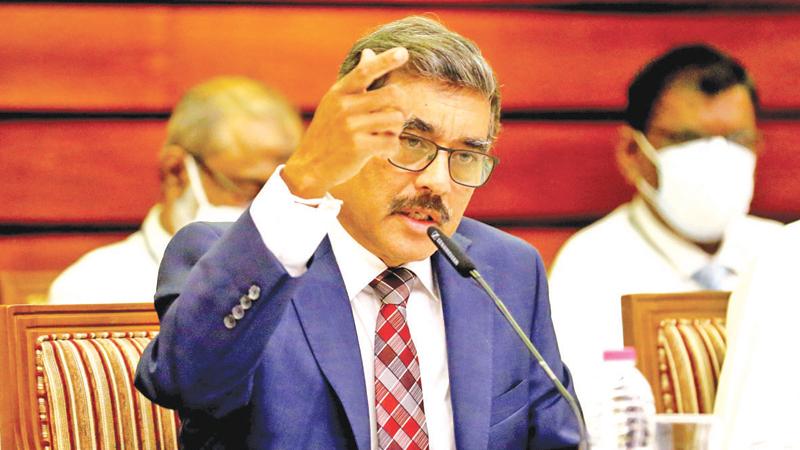
Negotiations with the IMF is progressing well and we are confident of a staff level agreement reached soon following a high level delegation from the IMF expected late this month, Central Bank Governor Dr. Nandalal Weerasinghe said.
He was speaking to the media on the bank’s monetary policy stance last week.
He said discussions with bilateral and commercial creditors will commence after a staff level agreement has been reached. Responding to President Ranil Wickremesinghe’s comments that the country’s International Sovereign Bond holders may compel the government to restructure domestic debt as well since they alone will not want a steep haircut under a debt sustainability plan the governor said the President’s fear is reasonable as domestic debt restructuring will have adverse consequences on the financial and banking sector stability which will also affect creditors.
According to the Central Bank a meeting towards reaching a staff-level agreement on the Extended Fund Facility (EFF) arrangement are scheduled in the coming weeks, while expeditious measures are being taken to advance the debt restructuring process with the assistance of financial and legal advisors the Central Bank said at its last monetary policy stance media briefing last week.
The Finance Ministry and the Central Bank had several rounds of discussions with the global lender this year to secure a funding arrangement to shore up foreign reserves that had depleted due to unsavory external and domestic economic conditions preceding years.
On the domestic front the bank said there could be a larger than expected contraction in real activity this year due to the impact of persisted supply side disruptions, primarily due to shortages of power and energy, and uncertainties associated with socio-political developments.
Such impacts are expected to have caused significant adverse effects on economic growth in Q2 and continued through Q3 this year and these coupled with the already recorded negative growth in Q1 and contractionary policies, could result in a major contraction in the economy in 2022, the bank noted.
However, it noted real GDP growth is expected to recover in the period ahead, with the envisaged stabilisation of macroeconomic conditions and implementation of structural reforms in the economy.
Despite heightened challenges, positive developments are observed in the external sector merchandise trade deficit continues to decline in cumulative terms, reflecting mainly the impact of policy measures to curtail non urgent imports, while earnings from exports continue to remain high, the Central Bank stated.
Foreign exchange inflows in the form of workers’ remittances remain lower than expected, while improvements are observed in the tourism sector, with increasing tourist arrivals, the Central Bank stated.
Accordingly, the exchange rate remains broadly stable within the market guidance that commenced from mid-May 2022, while the gap between the curb market and official exchange rates has declined notably in recent weeks, the Central Bank stated. Gross official reserves, as at end July 2022, are estimated at US dollars 1.8 billion, including the swap facility from the People’s Bank of China equivalent to around US dollars 1.5 billion, which is subject to conditionalities on usability.
The pace of acceleration of inflation has moderated faster than expected Headline inflation rose at a slow pace in July 2022, compared to recent months. Such moderation is expected to continue in the period ahead, thereby resulting in a low level of inflation by end 2022, compared to previous projections.
The Central Bank at its last Monetary Board meeting decided to maintain the Standing Deposit Facility Rate (SDFR) and the Standing Lending Facility Rate (SLFR) of the Central Bank at their current levels of 14.50 percent and 15.50 per cent considering the latest model-based projections, which point towards a larger than expected contraction in activity and a faster than expected easing of price pressures, compared to the previous monetary policy review.
Global economic growth is expected to slow at a faster pace as per the July 2022 update of the World Economic Outlook (WEO) of the International Monetary Fund (IMF), global economic growth is estimated to moderate to 3.2 per cent in 2022 from 6.1 per cent recorded in 2021.
Tighter financial conditions adopted by central banks around the world following the emergence of inflationary pressures, a slowdown in Chinese economy due to the resurgence of Covid-19, among others, and further negative spillovers from the geopolitical tensions in Eastern Europe have dampened global growth prospects, the bank said.
